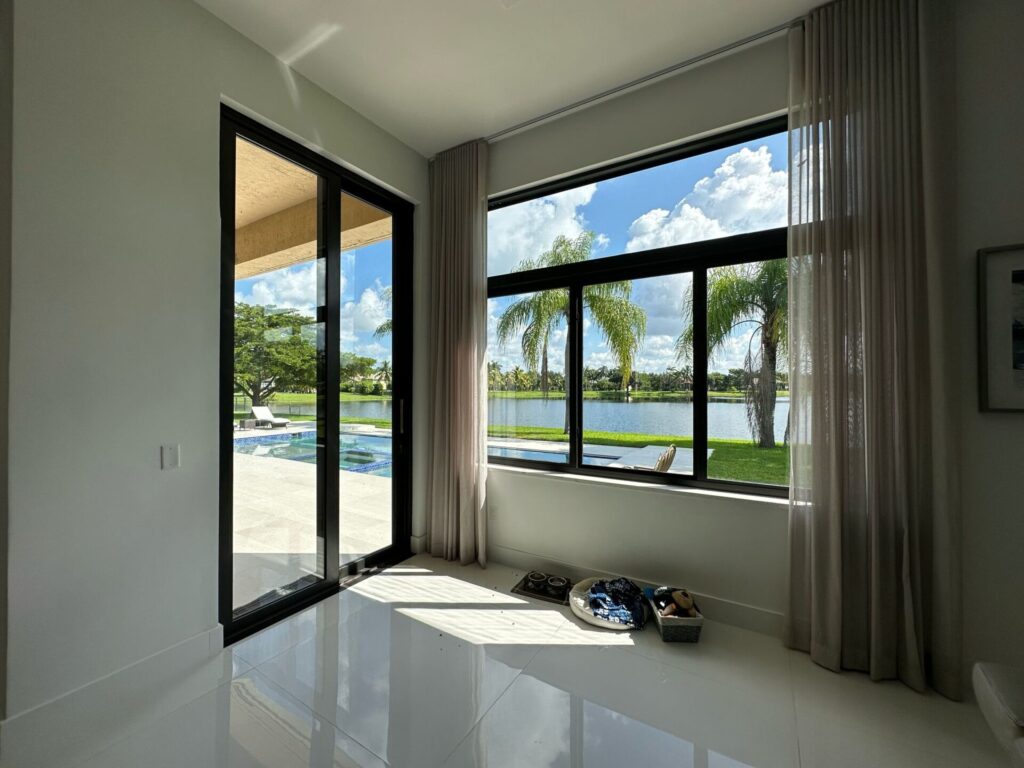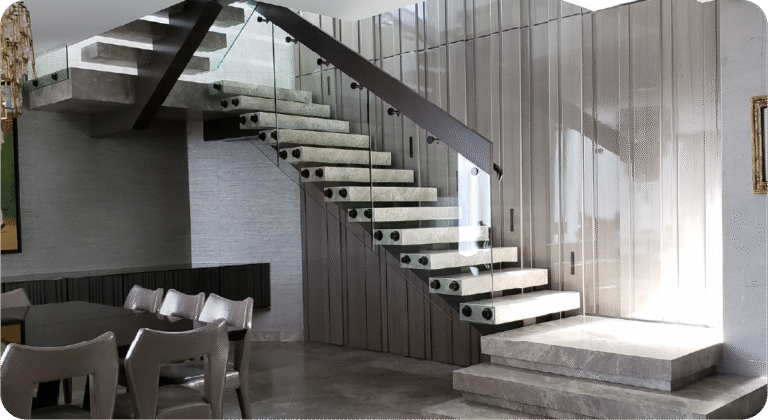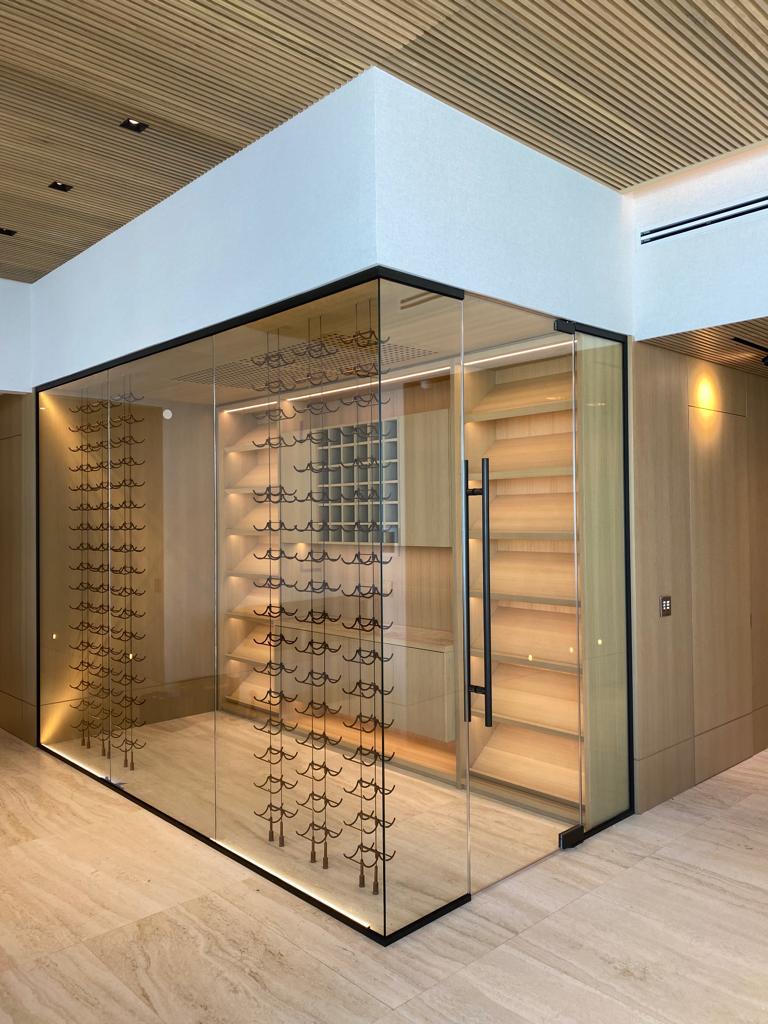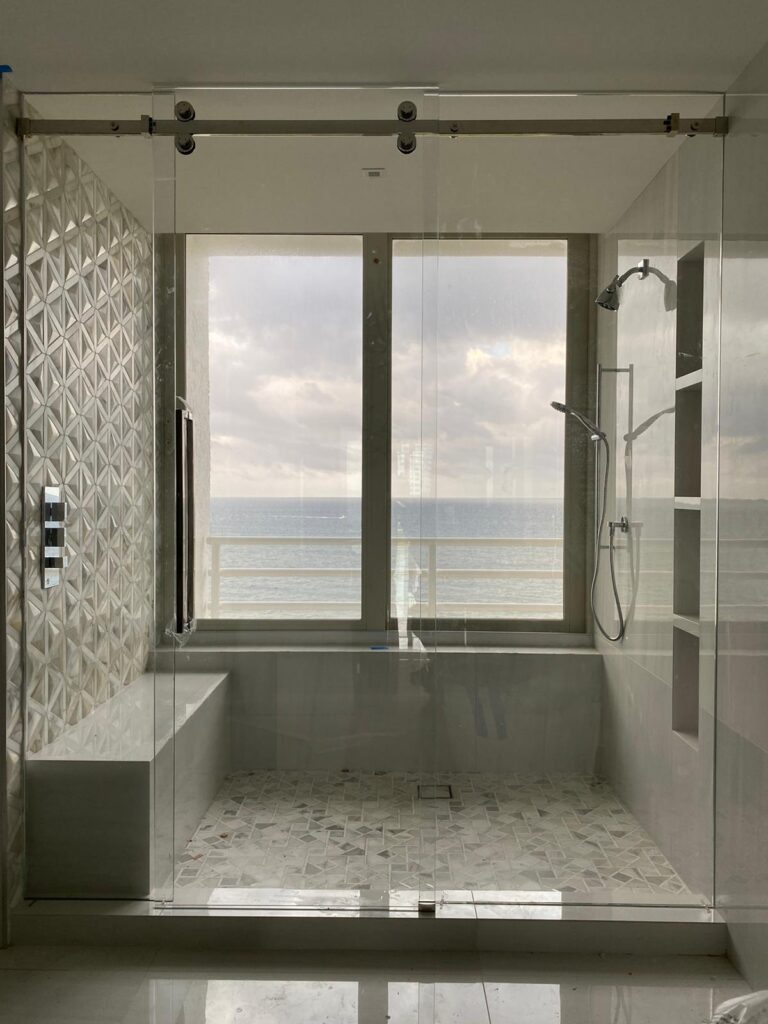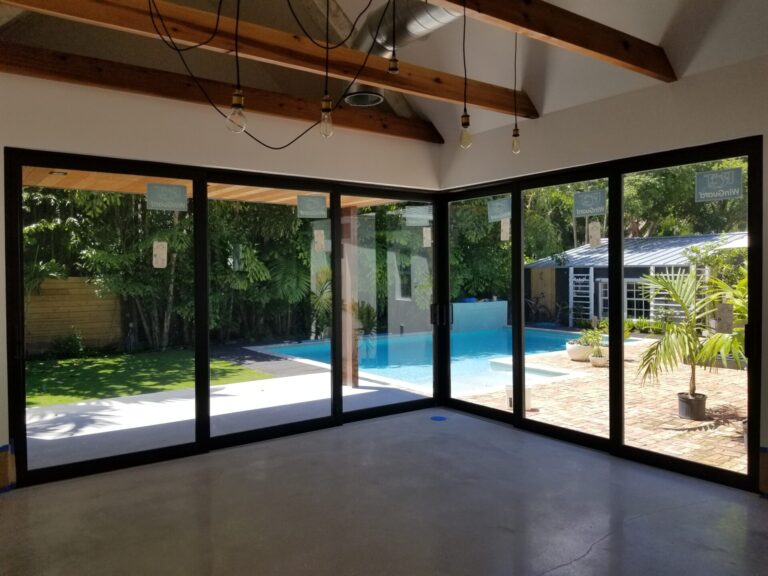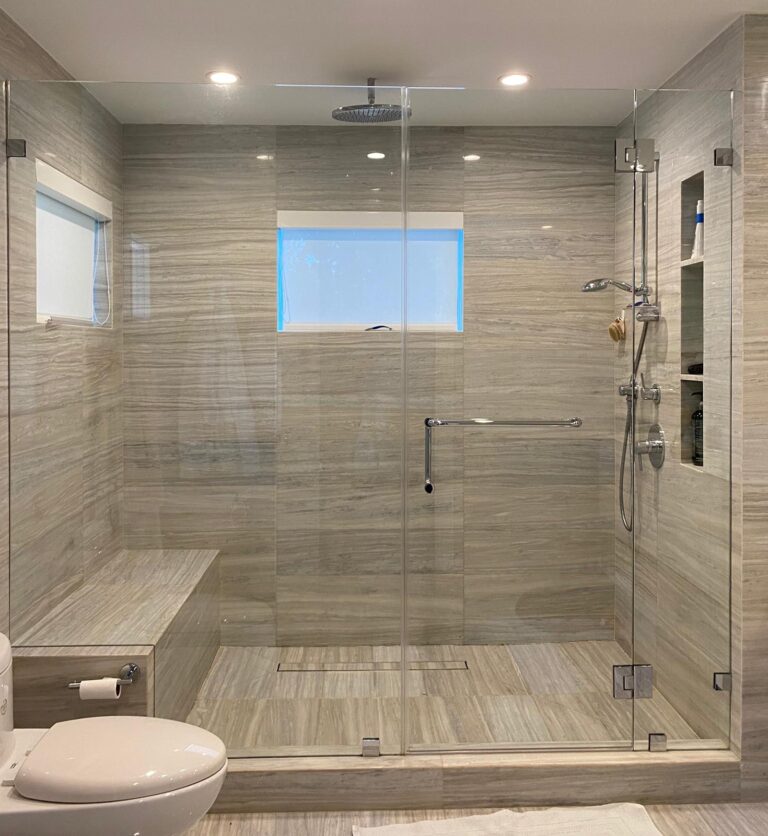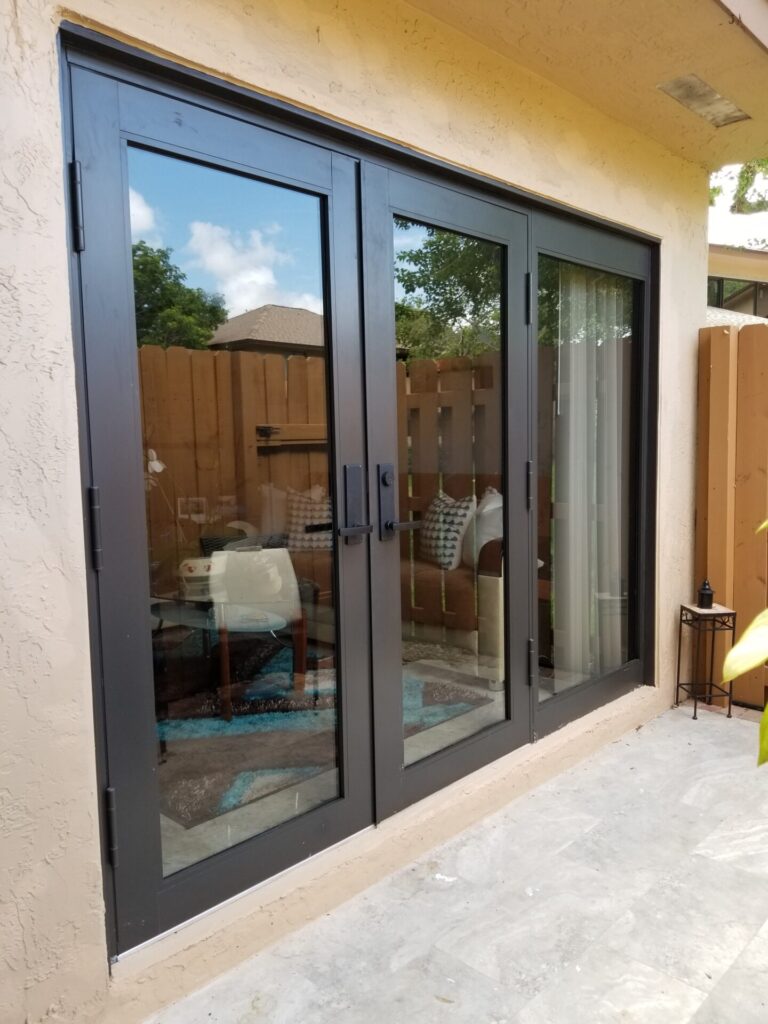When it comes to designing or building in Florida, choosing between impact glass and regular glass isn’t just a matter of cost or aesthetics. It’s a critical decision that affects the safety, durability, and regulatory compliance of any architectural project.
If you’re a designer, architect, or subcontractor, clearly understanding the differences between these two materials is essential to ensure functional, resilient, and code-compliant solutions. This technical guide will help you answer the big question: Impact glass vs. regular glass; which is right for your project?
What is Impact Glass?
Impact glass, also known as hurricane-resistant glass, is made up of two layers of glass bonded together with an interlayer of polyvinyl butyral (PVB) or resin. This structure keeps the panel intact even if the glass breaks.
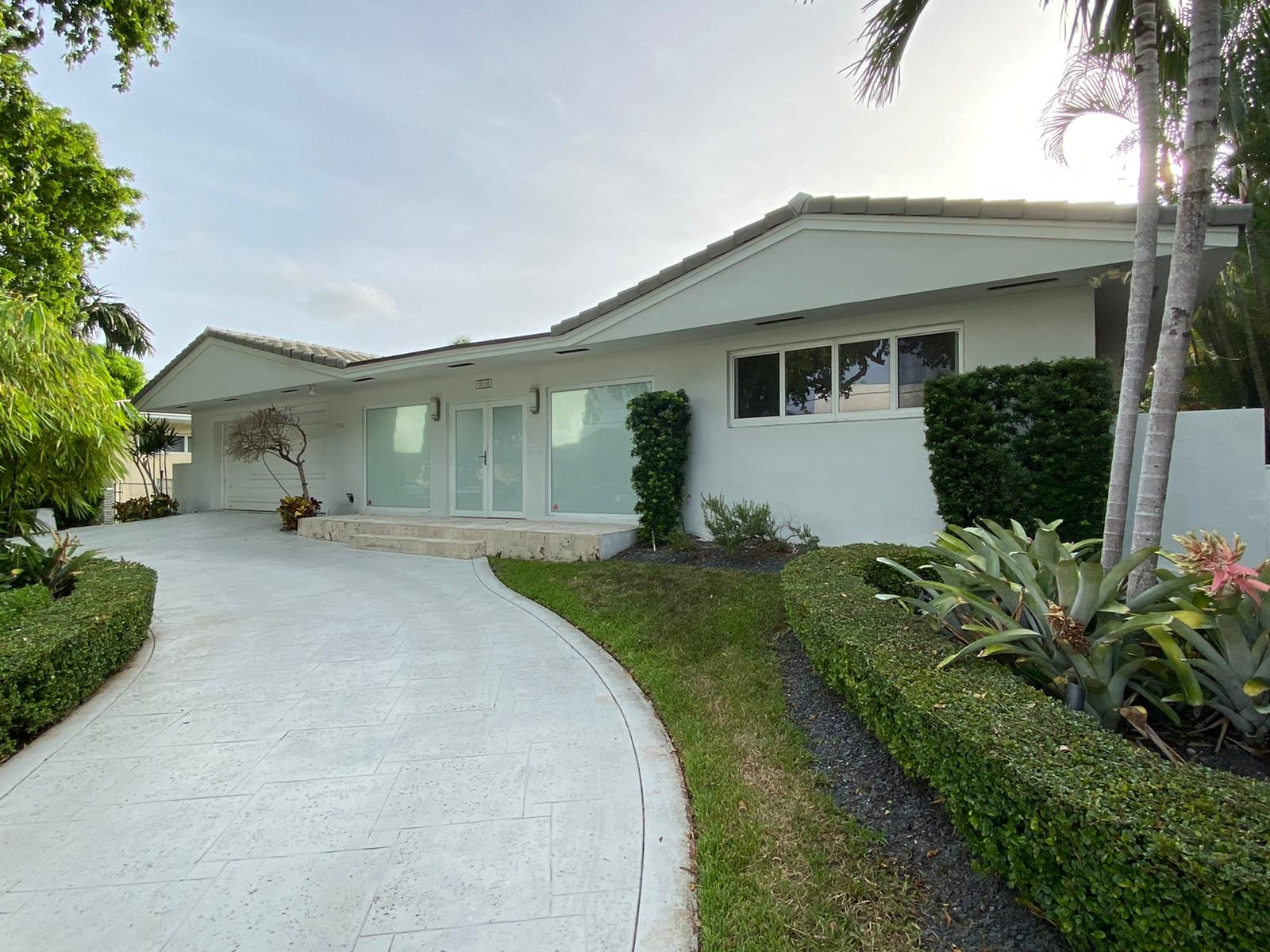 Key Benefits:
Key Benefits:
- Protection against high winds and flying debris (hurricanes, tropical storms).
- Increased security against break-ins or vandalism.
- Noise reduction and UV ray filtering.
- Complies with the Florida Building Code (FBC).
What is Regular Glass?
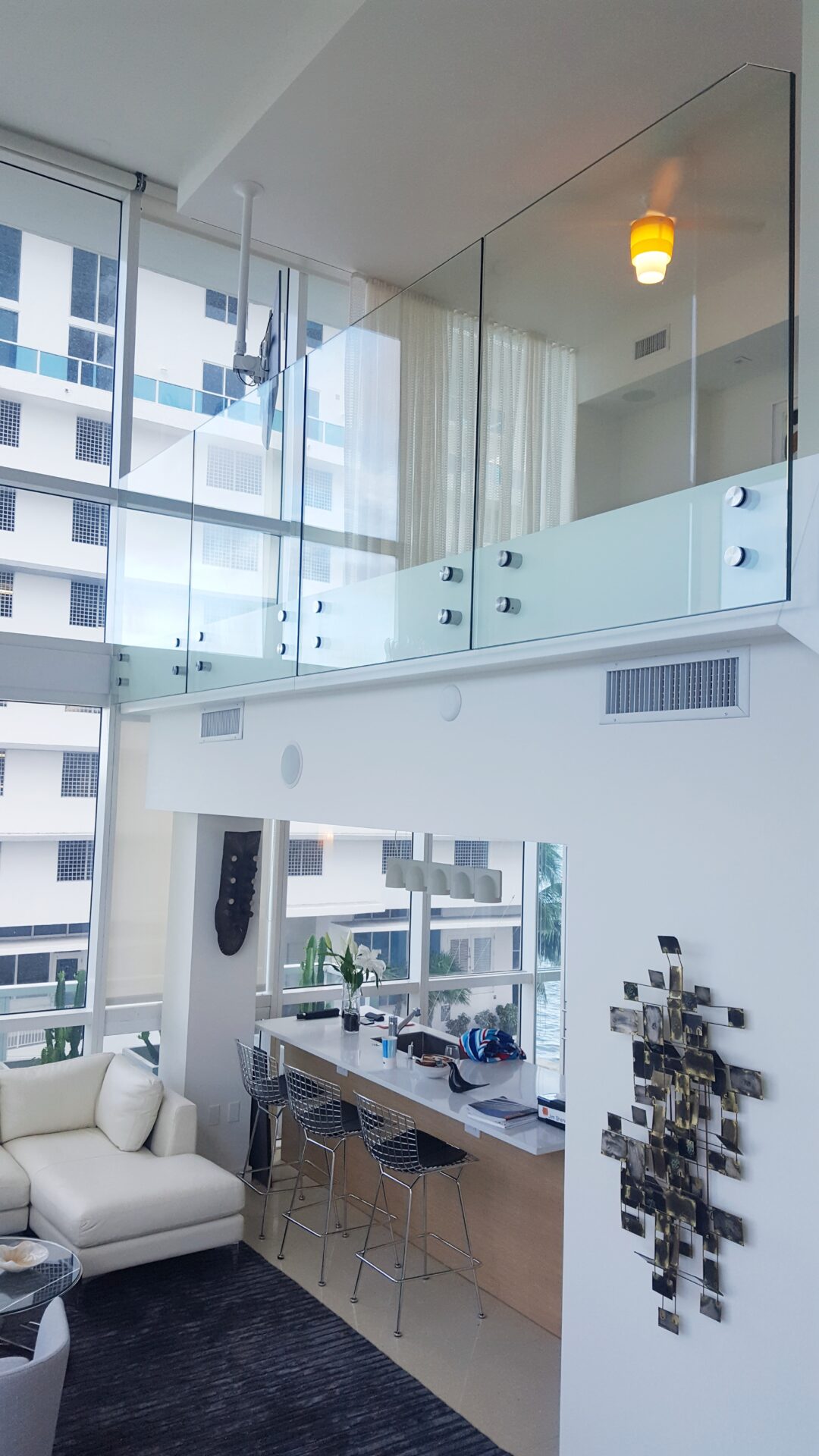
Regular glass, also known as monolithic glass, is a single sheet of glass with no interlayer or special treatment. While it can be tempered for added strength, it doesn’t offer the structural benefits of impact glass.
Limitations of Regular Glass:
- Breaks easily into dangerous shards.
- Not suitable for facades or windows in high-risk climate zones.
- In South Florida, it does not meet exterior building codes without additional protection.
When to Use Each Type of Glass
Use impact glass for:
- Exterior windows or doors in South Florida and coastal areas
- Residential or commercial buildings at risk of hurricanes
- Projects aiming to improve security without metal shutters
- High-end architectural facades with structural requirements
Use regular glass for:
- Interior glass doors
- Office partitions or internal dividers
- Indoor commercial displays and showcases not exposed to the elements
For subcontractors, this knowledge can make a crucial difference when quoting accurately, avoiding rework, and passing municipal inspections.
Benefits of Choosing Impact Glass in South Florida
Using impact glass is not only a response to climate challenges—it also adds value in terms of safety, energy efficiency, and uninterrupted aesthetics. With solutions provided by experts like RO Projects, impact glass can be seamlessly integrated into modern designs without sacrificing architectural style or flow.
Additionally, by installing impact glass:
- You may lower insurance costs for your client.
- You automatically comply with local regulations (FBC and HVHZ).
- You eliminate the need for shutters or additional protection.
Safe Project, Satisfied Client
The correct use of glass ensures not only the project’s durability but also the client’s peace of mind. Whether commercial or residential, choosing wisely between Impact glass vs. regular glass determines whether your project will be approved, livable, and disaster-resistant.
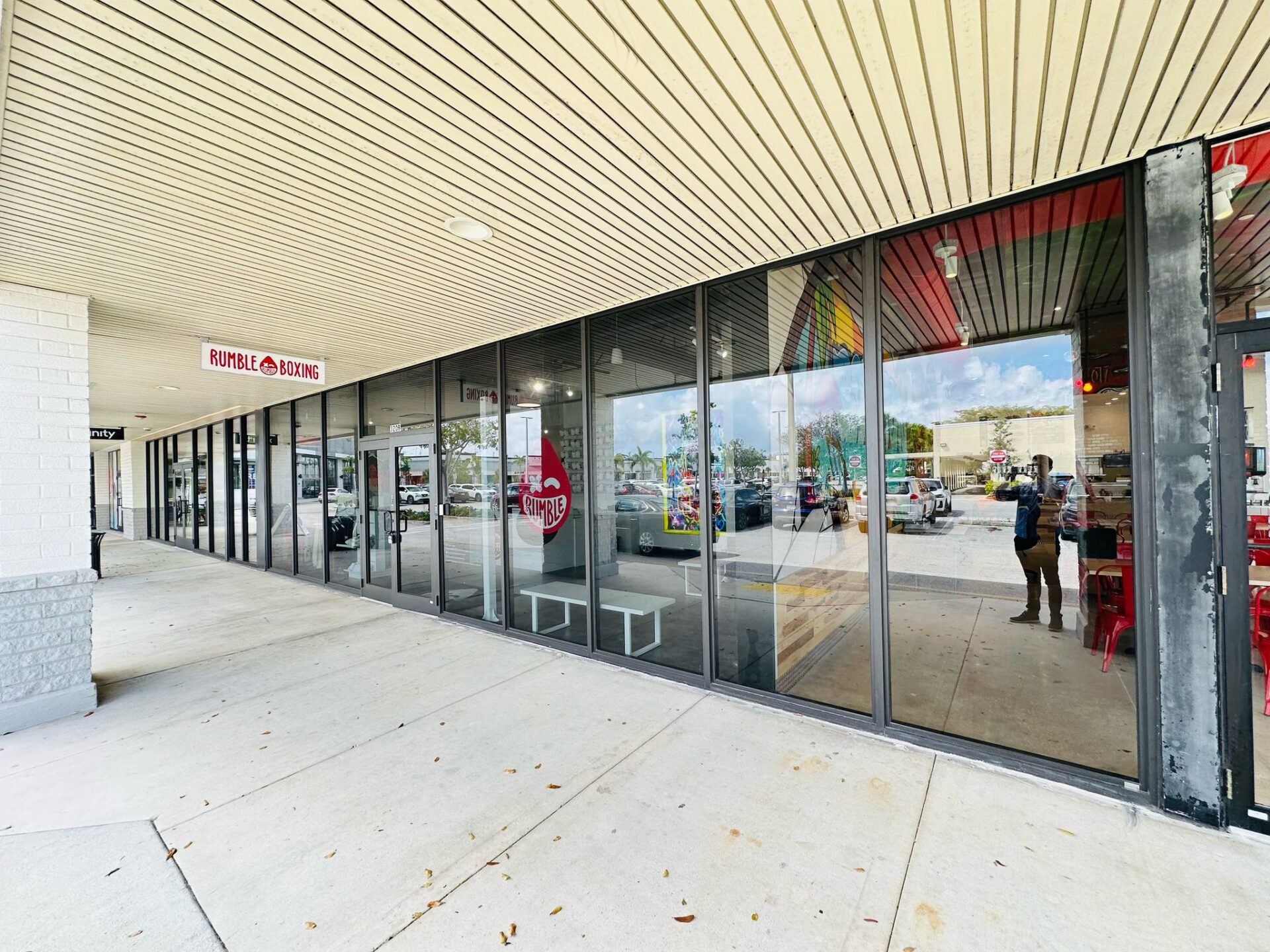 Conclusion
Conclusion
In short, if you’re developing a project in Florida, the choice is clear: impact glass is the solution that meets the highest standards for safety, efficiency, and code compliance. While regular glass may have its place indoors, it should never be used for exterior applications without supplementary measures.
For quotes, technical specifications, or the development of custom impact glass solutions, contact RO Projects—your trusted partner in safe and modern architectural glass solutions.


